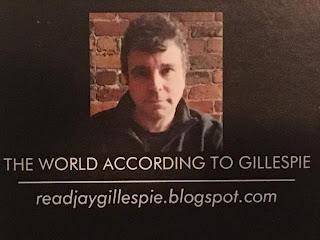SIANI FILM SHEDS LIGHT ON CELLPHONE DEPENDENCE This column originally appeared on Wicked Local.
by Jay
Gillespie
What is your relationship to your phone? Media and social science Professor Joni Siani
encourages you to consider the role that your cell phone plays in your day to
day experience in her book Celling
Your Soul: No App for Life and also her film, Celling Your Soul, which is set to premiere at the Coolidge Corner
Theatre (617-734-2501) in Brookline on September 27th.
Celling Your Soul
follows a group of young adults who agree to put away their cell phones and
restrict themselves from the internet for a one week digital cleanse as part of
their final project in Professor Siani’s college class. The effort is not a challenge to see if you
can simply get by without the use of these modern technological conveniences. The point of the digital cleanse is that it affords
participants the opportunity to take an introspective look at how they are
socially, emotionally, and biologically affected by technology and reflect on
their experience. After a week of
recorded journaling, all of the volunteers in Siani’s documentary conclude one
thing regarding their reliance on the digital world, “I have a problem.”
Taylor O’Malley, a student of Siani’s who took part in the
digital cleanse, was open about her need for technology. “I can’t answer the phone,” says
O’Malley. “I get too scared. I will not even order pizza or anything
unless it has an on-line option.” With
regard to her phone, O’Malley says, “I need it.
I need it. I sleep with my phone
in my bed. I need my charger with me at
all times.”
Our current generation of young adults has no concept of
what it would be like to live without a cell phone. According to the Huffington Post, “84% cannot
go a day without their phones.” Says Siani,
“As humans, we’re hard-wired to bond with one another and in the digital age we
turn on our devices. We post, we tweet,
we text hoping to make a connection but we end up getting sad when we’re
ignored. So we try again. When we get a response, our happy brain
actually kicks out happy chemicals called dopamine. It’s the same principle as playing a slot
machine. We think if we keep playing,
we’re going to get a pay-off.”
“Millennials are spending up to 18 hours per day in media
multitasking consumption,” reports the Wall Street Journal.
“Research is now revealing that our reliance on digital
technology has actually altered the development of our human apps which has
resulted in unintended consequences,” says Siani. Health experts have warned that reliance on
technology leads to increased occurrences of addiction, stress, anxiety, panic
attacks, ADD, narcissism, self-centered behavior, and even suicidal thoughts
along with decreases in empathy, self-reliance, self-esteem, autonomy, and the
ability to develop social skills.
It is of note that Steve Jobs did not let his own children
play with an Ipad and Chris Anderson, Chief Executive of 3D Robotics (a company
that makes drones), keeps “parental control of every device in his home.” Says Anderson, “I know the dangers of
technology first hand. I don’t want to
see that happen to my kids.”
But why isn’t this message getting out to the general
public?
A day or so into the digital cleanse, Lorand Moore, a student
of Joni Siani’s, began to experience anxiety without his phone. “The day is just gloomy because I feel
something is going to happen and I’m not going to have my phone and I’m panicking.” Siani believes this process of withdrawal is
important. “What is it doing to your
head? Let’s see how it feels to go more
authentic with our one on one communication rather than focus on our digital
devices to connect. When we start
communicating with our thumbs we’re in trouble.”
The digital cleanse proved to be a valuable experience for
Siani’s students. “When you step out of
that box,” shares Morgan Brown, “you truly see how much it consumes you.” Steven Gage decided that he “wanted human
connection again.” Originally, Jacquelyn
Cifarelli didn’t think she needed the digital cleanse, but realized that her
reliance on technology was much greater than she had originally thought. “I didn’t think I was connected to my
phone.” And Ben Abbene found that “the important
people will call you, not just text you.”
The unfortunate message this generation is getting is that
they can’t connect with somebody without the use of some device. The data is clear, says Siani. “It’s not fulfilling. It’s not feeding the soul in the way that
humans are supposed to connect.”
Siani’s message in both her book and her film, Celling Your Soul, is positive and
inclusive. “It’s not anti-technology,”
says Siani. “It’s pro-human. It’s about connecting on an authentic level.”
“I believe that before we teach our children how to talk to
a million people in a fraction of a second, we should first teach them how to
talk to just one.”
Jay Gillespie is a
local writer, musician, comedian, and history teacher.




Comments
Post a Comment